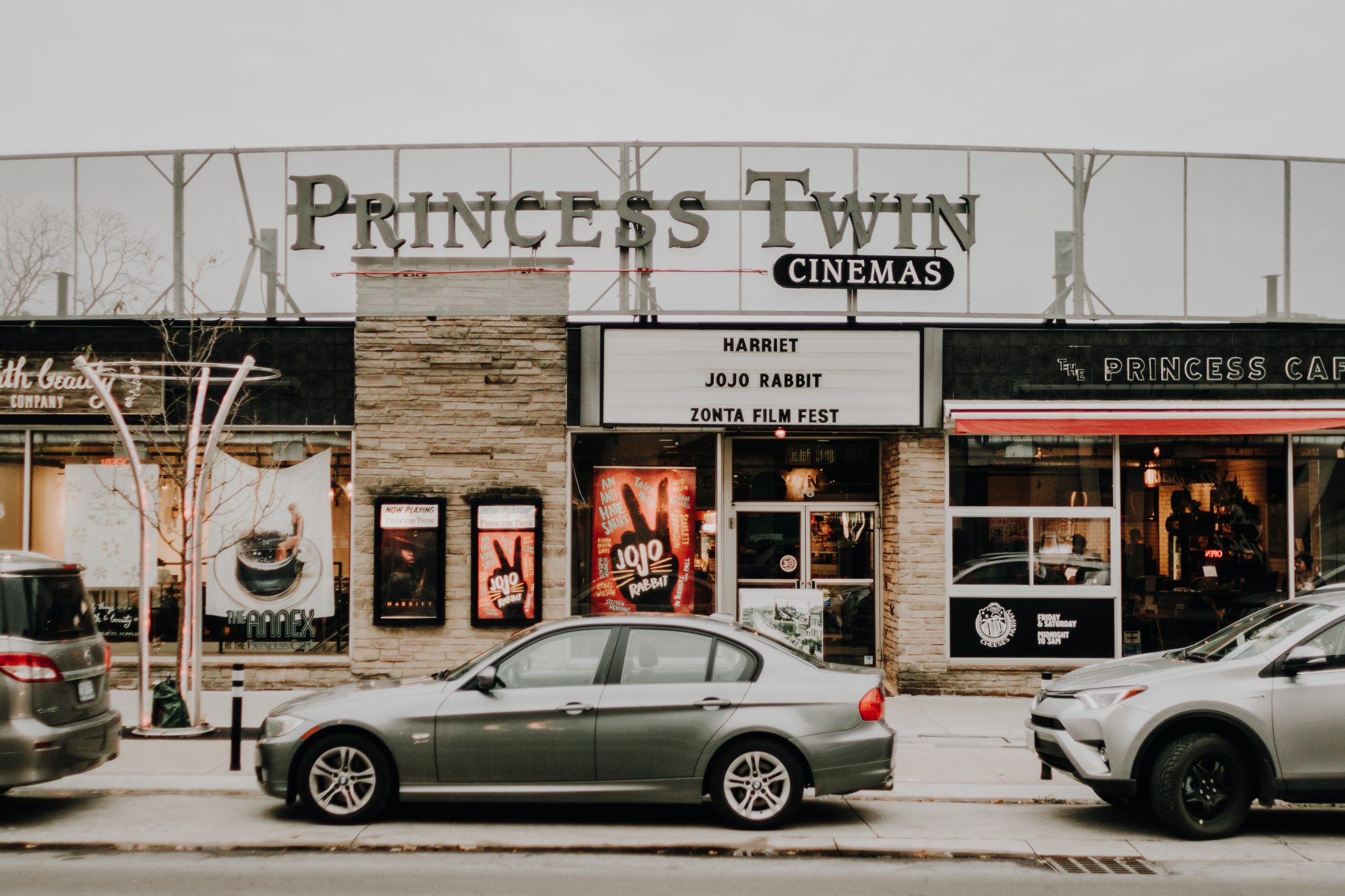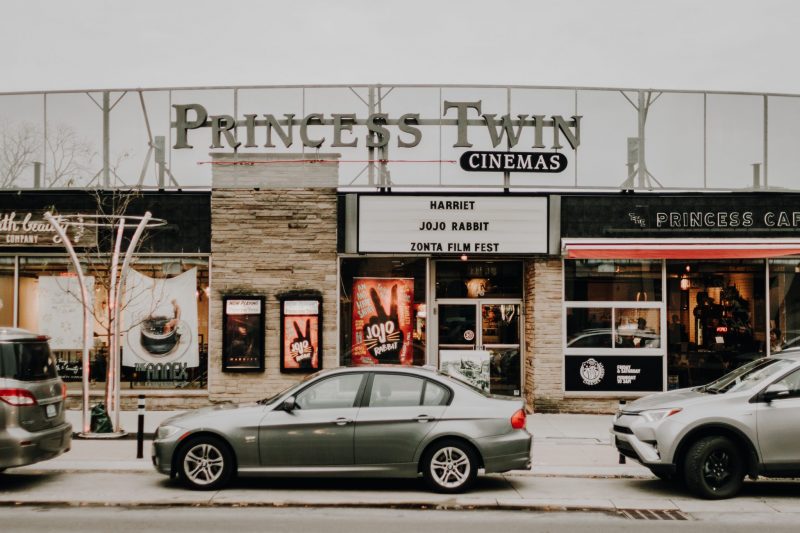Escaping into the world of film


I love going to the movies. Maybe it’s the buttery popcorn, or the comfy and worn-in chairs in the cinema, or even oddly enough the laugh I have when I hear someone trying to suck in every last drop of their slushy.
Recently, I have been spending even more time than usual at the local cinema houses in Uptown Waterloo, The Princess and the Princess Twin. Most of the time, I prefer to see movies solo. I have found cinema a way for me to spend some time alone, away from the pervasiveness of my friends’ and families’ thoughts, where I can completely stall the gears of my brain for an hour and a half to focus on a completely new world separate from my own. Cinema is an escape. Cinema is informative. Cinema is life.
However, lately I have been having a change of heart when it comes to seeing films. Recently, I have thoroughly enjoyed it when my friends have joined me to see a movie. The conversations we have after the film is consistently constructive, and often helps me unpack various themes or scenes that were unclear to me initially. It is also a refreshing and new type of conversation, both stimulating in discussion and harmonious in how it brings my friends and I closer together.
Not only has cinema brought me closer to my friends and family, but some of the films I have seen have moved me to reflect upon my personal experiences, memories in my life, and have opened up my world and mind to other peoples experiences around the world.
Out of all the films I have seen recently, three have resonated with me significantly.
First was Martin Scorcese’s much anticipated film The Irishman. With both a commercial and Netflix release, I opted to see this film at the Princess Twin. For three and a half hours, I was engulfed in a cinematic journey that took me through the life of Irishman Frank Sheeran, played by Martin Scorcese’s long time muse Robert De Niro. Joe Pesci and Al Pacino also star in the film, with cameos from Hollywood giants like Harvey Keitel. As someone who grew up watching the films of Martin Scorsese, Francis Ford Coppola, and Michael Cimino, The Irishman was very bitter sweet.
My dad used to take me to the video store in our neighbourhood on the weekends I was with him, and through that time we watched all the
The Godfather trilogy (although not the third one — who really likes it?), Deer Hunter, Taxi Driver, and other major films from the Hollywood Renaissance. This created a bond between my father and I, we watched films together, and we talked about the films we wanted to see.
The Irishman felt like the end of that era. With major actors from these films such as Pacino, De Niro, and Pesci getting older and retiring, The Irishman was a heart-wrenching goodbye. A goodbye to the actors that defined a generation of film, and a goodbye to a type of cinema that may not exist in the same way as it has since the 1970s, the mob film and the cinema of urban decline. I guess that means my dad and I will have to find a new film genre too.
Parasite, directed by Bong Joon-ho is another film of the year for me. Parasite was an incredible experience because I had never seen a film of Bong Joon-ho before, or a South Korean film. Seeing this movie was so important to me because it opened up a completely different worldview, from a part of the world I had never experienced physically or cinematically. Parasite was like nothing I had ever seen before.
Following the life of a conning family, it was a brilliant social satire that was bitingly witty, elegantly filmed, and full of surprises that you never saw coming.
For me, Parasite was quintessential because it elevated and exposed my palette to a whole new kind of film, outside of American and European cinema. By going outside of my comfort zone, I discovered something incredible. The next time any other South Korean films are playing at The Princess, I will definitely be attending, and I recommend you do as well.
Finally, Waves, directed by Trey Edward Shults finishes off this list of the three films that have resonated the most with me recently. Waves tells the story of an African- American Florida family in two parts, the first surrounding the son Tyler, a high school senior and all-star athlete played by actor Kelvin Harrison Jr. The second half of the film is based on the life of the sister Emily, played by breakout Vancouver actress Taylor Russell. After their family faces tragedy and immense loss, the film focuses on how they reunite and come back together through adversity.
Waves is a cinematic experience. The cinematography is creative, intense, and at times hard to watch (the amount of 360 degree shots at times made me a bit dizzy), however it added an element of disorientation to the plot of the film through the use of the camera.
For a breakout independent, Waves presents a unique and articulate story about a family and takes you along for the journey, making you feel all the heartache and struggles of each character.
At a time where we are constantly being hounded by the invasiveness of social media and mass commercialism, cinema is a way to escape these forces that have come to shape our generation. Films such as The Irishman, Parasite, and Waves each provided me with a different worldview, and connected me to different experiences of my own. That to me, is the power of
When we think and engage with it critically, it can be a powerful medium that challenges the way we see things, connects us to our own personal lives, and brings us closer to the ones we love.
I suggest to everyone that they get out more often to see films on their own, or with their friends. You may be surprised at the conversations you have with your friends after you see a
Instead of staring at each others Instagram feeds, meaningful discussion and quality time can be found through the discussion of
Stimulating intellect and satisfying to the soul, the cinema is an escape from the chaos of our everyday lives.


